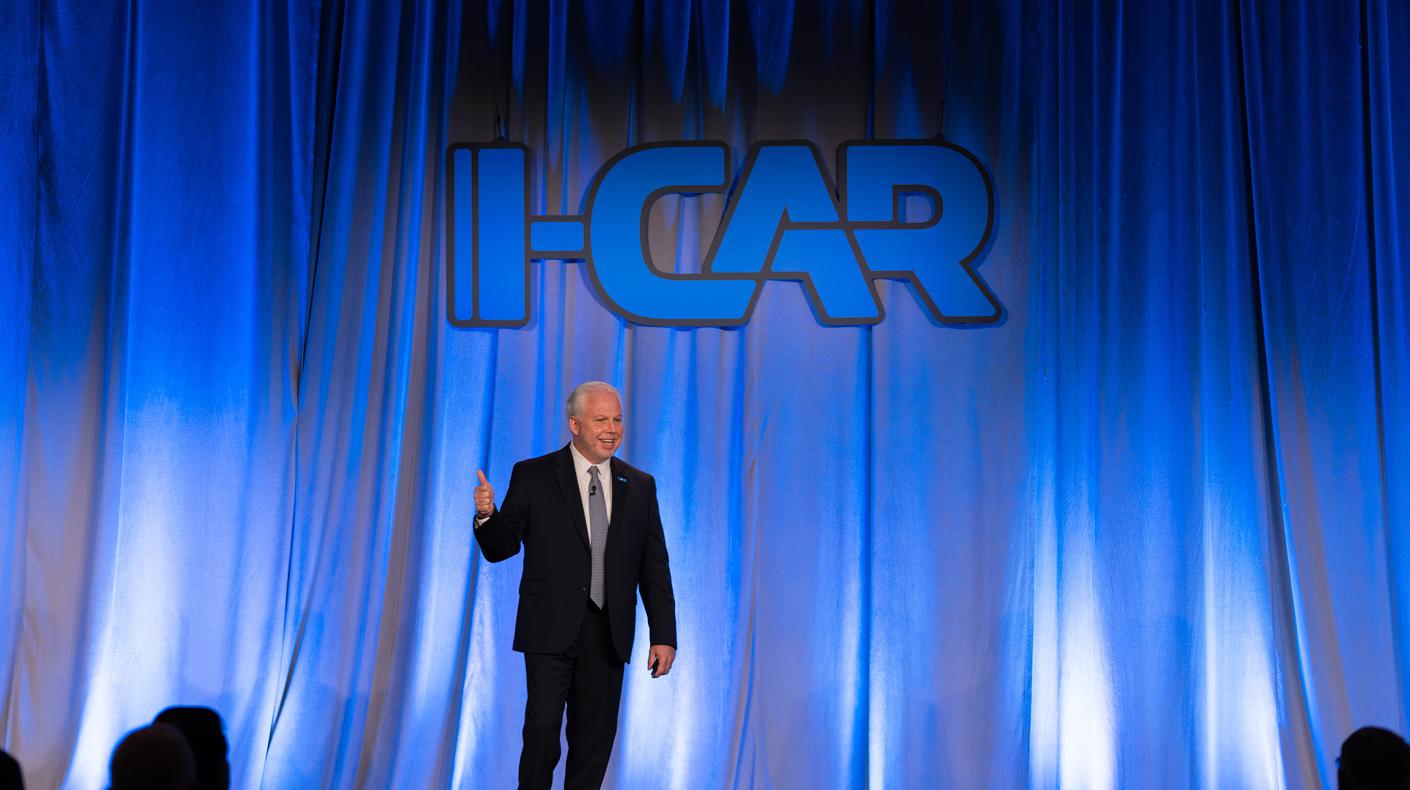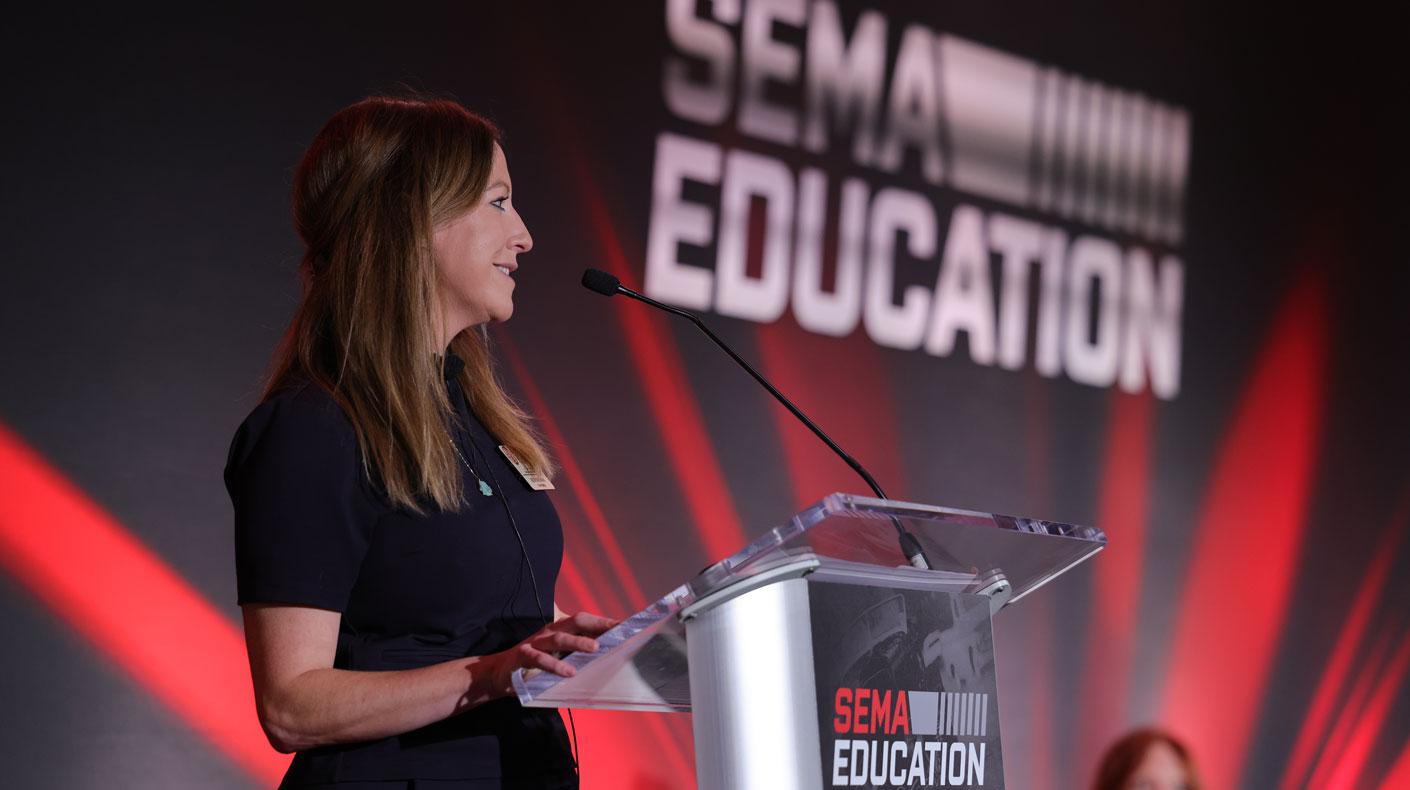
YJK Motorsports
China’s automobile market, already the world’s second largest, will see sales of about 6 million new passenger cars, SUV's and minivans in 2008. According to J.D. Power and Associates, the Chinese market will be about the same size as the United States market in the middle of the next decade.
This fast growth is driven by pent-up consumer demand and a very low level of car ownership in China, with 9 car owners per 1000 people, compared to 450 owners per 1000 people in the U.S. Car sales remain strong with yearly growth exceeding 20% during the last few years. The market is expected to expand this year by another 13 to 15 percent.
With the numbers of cars on the road increasing, what is happening with the specialty-equipment market and tuning shops that serve the consumer? We've picked a range of street tuning and 4x4 modification shops to highlight the diversity in this emerging market, and give an overview of the way these shops operate.
Street Tuning and 4x4 Modification—Positive Future
The road conditions in China are rapidly improving, with tens of thousands of miles of new highways slated for construction by 2020, especially between the major cities. This improvement means that tuned vehicles will have more lowered suspension-friendly miles of blacktop every year.
Nevertheless, many years of sub-par road conditions have meant that the 4x4 and off-road aftermarket got a good head start on the street tuning market, with some 4WD modification shops opening in the early- to mid-1990’s. As road conditions in China improve over the next few years, the street tuning market will grow along the same thoroughfares.
Interestingly, and some might say counterintuitively, the more roads there are, the more people will want to go "off road." The off-road shops we've talked to all say that most of their clientele own two or more cars and use their 4WD vehicles on the weekend to "get back to nature." As road networks expand, this feeling is likely to increase and result in an expanding off-road culture.
A Sample of Street Tuning Shops
A significant proportion of the tuning shops in China are located in the Southeastern province of Guangdong, which neighbors Hong Kong and Macao—both of which have had strong street tuning cultures since the 1970s. The mainland Chinese tuning culture, both on-road and off, have their roots in the customized vehicles that were driven over the border from Hong Kong in the last three decades of the last century.
One of the oldest tuning stores in China is YJK Motorsports in Shenzhen, just across the border from Hong Kong. YJK started as a race car tuning shop, and since its establishment at the end of 1995 it has grown from a 1600 sq ft shop to its present 16,000 sq ft footprint. it's one of the very few shops in China to have a dynamometer. YJK now does retail and wholesale through the distribution network they've built up along the coastal provinces as far as Beijing.
YJK markets street tuning products from overseas, such as suspension, lights, tail lights, brakes, ignition products, shifters, gear knobs, pedals, exhaust, strut tower braces, wipers, racing seats, and engine chips. The shop doesn’t charge an extra fee for dyno tuning. Rather, they provide this as a service to customers who have brought their vehicle in for an upgrade.
“You can’t tune a car properly without a dyno.’ emphasized YJK marketing manager, Mr. Chen.
Most of the shops we interviewed are not stand-alone establishments. They're usually located in light industrial or semi-industrial areas with a group of aftermarket shops. KY Racing is located in one such auto aftermarket area in Shenzhen called Yong Fu Road, a well-known locale in the Chinese aftermarket industry.
KY Racing is one of several tuning shops in this grouping of several hundred shops, and it's a purely retail establishment catering to the mid-level of the market. The typical products carried in this kind of shop are well-known brands of brakes, strut tower bars, exhausts, foot pedals, oil and additives, tail lights, wheels and tires, suspension, (springs, shocks, coilovers), chassis braces, air filters, gear knobs, ignition accessories, (plug wires and covers) and steering wheels.
KY carries all of these products, sometimes only as display items. Because of Shenzen's proximity to Hong Kong, KY's suppliers are close enough that most products are usually available within a few hours.

KY Racing.
Moving 300 miles north to Shanghai are SRT and WAVE, the former a "service-only," high-end tuner on the well-known auto sales and aftermarket strip called Wuzhong Road. SRT's understated storefront belies a reputation that doesn't require advertising. SRT has always concentrated on word of mouth and a well-heeled clientele that wants to choose its own mix of products, mainly for Subaru WRX and Lancer Evolution vehicles.
The quiet exterior also served them well during a 2006 crackdown on tuning by the Shanghai police. SRT simply closed the shutters, phoned their regular clients, and reopened again when the worst of the police harassment had subsided.
The package of products and services that SRT sells includes high-end turbocharged engine tuning and suspension, gearbox, and drivetrain products. They have a contract for high-end tuning support with Japan's JUN Auto Mechanic, and major competition tuning work is done by a Japanese tuning engineer who flies in and tunes engines assembled by SRT staff.
SRT covers the engineer's services and his stay, and pays a daily fee for his work. The fee does not include parts or accessories. SRT is known for providing motorsports customers with winning machinery, and they also have their own cars and drivers for development work.
WAVE, another Shanghai shop that survived the 2006 crackdown, has moved from a race track on the outskirts of town to offices and flagship shop downtown. They've also just opened a second store. An intensive sales effort in the provinces north and west of Shanghai during the first half of this year hit pay dirt, and now WAVE has a distribution network of 100 independent tuning shops.
According to WAVE general manager and co-owner Handy Xu, establishing the 100-shop network required six sales staff to be on the road for nearly five months.
“We only went to the bigger cities in Zhejiang, Jiangsu, and Shandong Province and in each city there are at least seven or eight shops," Xu says. "We are happy with our first effort, but there are still a lot of stores if you start going to the second- and third-tier towns in those same provinces."
The products that WAVE distributes include tires, aero kits, batteries, oil and oil additives, suspension, engine inlet and exhaust, turbocharger-related accessories, electronics, and brakes. They mainly concentrate on high-horsepower tuning for rear-wheel drive cars, mainly for drifting. They also have a drifting school and organize a regional drifting event.

WAVE
4x4 Modification
4x4 and off-road shops are present all over China, but the majority tend to be on the outskirts of the largest metro areas, and then spread out though the cities and towns in the central, western, southern, and northern regions of the country where road conditions can be quite bad.
Chengdu is a city in Sichuan in western central China, and is located about 850 miles inland. Chengdu has a bunch of off-road modification shops, two of which are Cool Car and Top 4WD, both of which are located in an auto shop zone similar in concept to Young Fu Rd., but much newer and larger in scale due to the extra land available in Sichuan province.
Cool Car is the Chengdu distributor for the ‘Winbo’ brand of 4x4 and SUV accessories, and 70% of his total business is selling aftermarket 4x4 products to ‘4S’ stores, which are basically the same as new car dealers in the US.
When asked about the legality of the parts he is selling to 4S stores he said that a large part of his business is making the Chinese-made versions of overseas models look like the imported version. For instance: the Hyundai Tucson that is assembled and sold in China does not have the side step, front bullbar, rear rack, or roof rack that is on the imported model. However, Cool Car sells WINBO products that fit the Tucson, and 4S stores order these for the cars that they sell.
He also does retail work and fits products to customers’ cars that come in, mainly to stay in contact with what the market is doing and do new product testing. In a typical month his business will include products to fit 30 Toyota Prado, 30 Honda CRV, 40 Hyundai Sportage/Tucson, 2-3 Land Rovers, and 3-5 Mercedes-Benz.
Online sales are 3% to 5% of his biz. The products that Cool Car handles are the full range of off-road products including roof racks, push bars, nerf bars, light bars, rear racks, sidesteps, wheel racks and covers, roof mounted light pods, skid plates & sump guards. Vehicles these products fit include Honda, Toyota, VW, Hyundai, Land Rover, HUMMER, and Audi.
Also located in Chengdu is Top 4WD. Top 4WD does complete overhauls of 4WD vehicles, as well as performance tuning for off-road racing 4WDs. They retail and distribute products for 4x4s, among the brands they handle are Cooper Tires, Pro-comp suspension, and ARB products. Eric Sun has only been in business since 2006, but says that business is good, with 70% of his business is distribution of the products he handles.
The vehicles he typically deals with are Mitsubishi V23/V33/V43, Nissan joint venture manufactured pick-ups, Toyota LC75/LC80/LC100, and Jeep Cherokee & Grand Cherokee.
About 1,000 miles North East of Chengdu is the Municipality of Tianjin, which neighbors the municipality of Beijing. To the north of these areas are the vast expanses of Mongolia, a favorite destination for 4x4 owners looking for adventure.
Beijing Off-Roader Club on the outskirts of Beijing takes their customers for anything from one day return trips to 2 week treks and on these longer trips they sometimes venture as far as Siberia. The products popular with the off-roaders are Winches (they are the WARN distributor for China), diff locks, bull bars, suspension, racks, snorkels, air filters, roof rack, wheel rack, rear bar, lights, steering damper, underbody protection.
The majority of the people who are the clients of Beijing Off-Roader Club own 2 to 3 vehicles so they do not need their 4x4 as a daily driver, and this indicates that those indulging in 4x4 off-roading for pleasure are a well-heeled bunch of individuals, because the vehicles that the Club modifies are often worth upwards of US$80,000 fully fitted out.
Similar products are fitted to vehicles modified by V-Man in neighbouring Tianjin Municipality, but V-Man can also do major structural work such as leaf to coil spring conversions, chassis extensions and shortening, and can custom make bullbars and roofracks to order. The owner and chief engineer likes to be known as ‘Rock’, and he runs a Tier 3 supplier of metal parts to an auto factory in Tianjin.
His other business, V-Man, has the equipment and expertise to do major overhaul and custom vehicle building work. However, when asked about the legality of the modifications that V-Man does, he said that the customers who get this sort of work done have ‘relationships’ that allow them to pass the yearly inspections.

Cool Car—4x4 shop in Chengdu.
Brand vs Price—The Market is Maturing
The outline of the eight street tuning and off-road modification shops above shows the diversity already available in China, but one of the similarities is that all the shops interviewed said that their customers, when making a purchase decision, wanted to get the imported branded product if they could afford it.
The quality and aspirational value of imported products made by well-known international brands resonate with the consumers in both street and off-road circles. When these products are available, they are selling well, even though it is sometimes quite expensive. The problem with imported product is that it can sometimes mean a long wait.
Waiting, waiting….
Tuning shops dealing with high end clients spend a lot of time discovering what their clients want, and often the shop owner is the principle sales person. SRT spend an average of 45 days talking to the customer to find out what they want and need, and then it takes another 45 days to take delivery of the products, usually from Japan via Hong Kong, and fit them. KY Racing in Shenzhen waits only a short time for their products, with most of their suppliers close by.
Chengdu-located Cool Car and Top 4WD have to wait a week sometimes more for their products if they are out of stock, but at least they don’t have to handle importing hassles because they buy from within China. WAVE is in a similar situation with their imported product from Japan and the US in that they have to wait one or two weeks for product, but they also have to do their own importing procedures.
YJK has a lot of stock on hand and warehouse so the inventory costs are fairly high, but this allows them to serve their coastal clients quickly, an advantage in a market where waiting is normal. Most of their product comes in via Hong Kong, which makes their processing smoother.
New product info?
Information about new products cam from a wide range of sources, the main ones being the internet (China is very highly internet connected), word of mouth, suppliers, customer enquiries, motorsports, and magazines.
What products are in Demand?
In the Chinese market, the products that are the most in demand by mid level street tuners are suspension, exhaust, wheels and tires, and interior products such as gear knobs, foot pedals, and sports steering wheels.
The higher end tuners a want engine and turbocharger upgrades, such as electronic boost controllers, and they want brakes, some aero parts, and chip tuning. Off-road products in demand are suspension, tires and wheels, brakes, strengthened front bumpers and bull bars, winches, lights, snorkels, and racks of all sorts.
How big is the market?
In March of 2007 a survey of the number of tuning shops in China concluded that a conservative estimate would be around 400 4x4 modification shops, and 600 street tuning shops in the whole country, for a total of 1,000 establishments. So where are we today in September of 2008, 18 months later? Anecdotal evidence suggests that the number has been increasing since the first poll.
Modi-auto.com still doesn’t have complete coverage of the whole market, but today lists 798 shops on its website. Moreover, Handy Xu, of Shanghai based WAVE established a distribution network of 100 tuning stores in under five months and in only 3 of China’s 31 provinces;
“We only went to the bigger cities in Zhejiang, Jiangsu, Shandong Province and in each city there are at least 7 or 8 shops. We are happy with our first effort, but there are still lots of stores if you start to go to the 2nd and 3rd tier towns in those same provinces“. These facts alone suggest that the growth in tuning shops in China in the last year and a half has been significant.
Law
Consumers are able to legally customize their vehicles due to a recent change in national policy. The government has indicated this initial market opening measure signifies the governrment’s support of the industry and should be considered a first step in continued discussions with the industry.
SEMA has been engaged in on-going discussion with the Chinese government toward developing this important market for its members.
In addition to government advocacy, the association has prepared market research reports, educational materials and networking channels to help businesses reach this important market as well as global sales opportunities worldwide.
Full contact information on the companies mentioned in this article are available in a SEMA China Market Report available online at www.sema.org/international.





